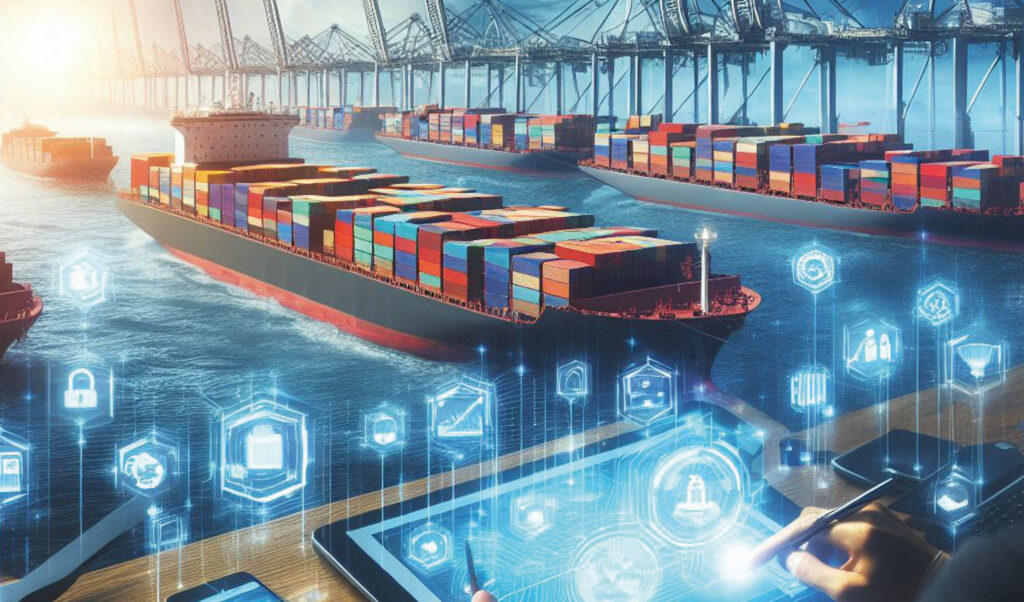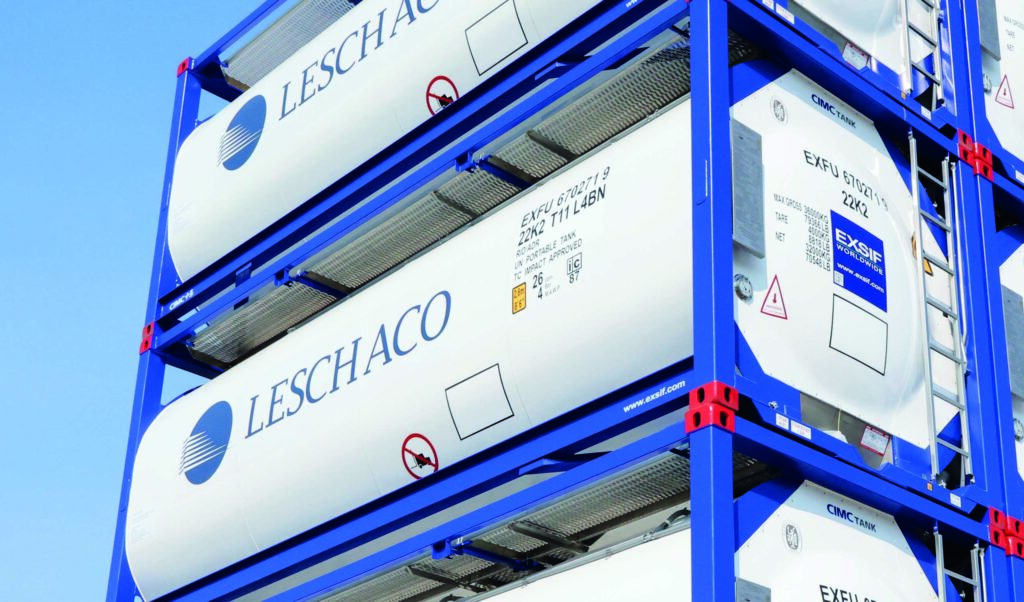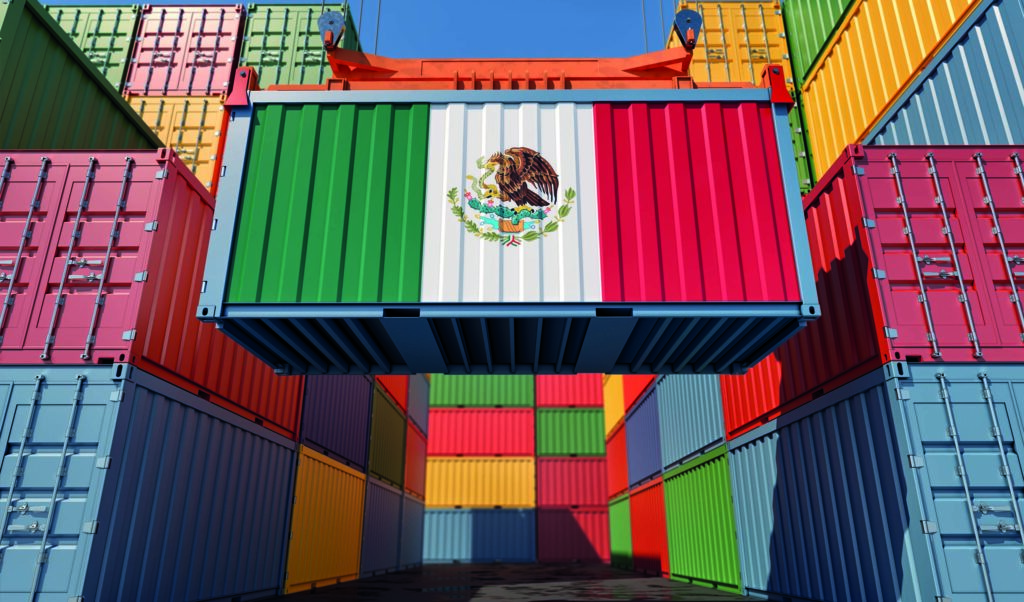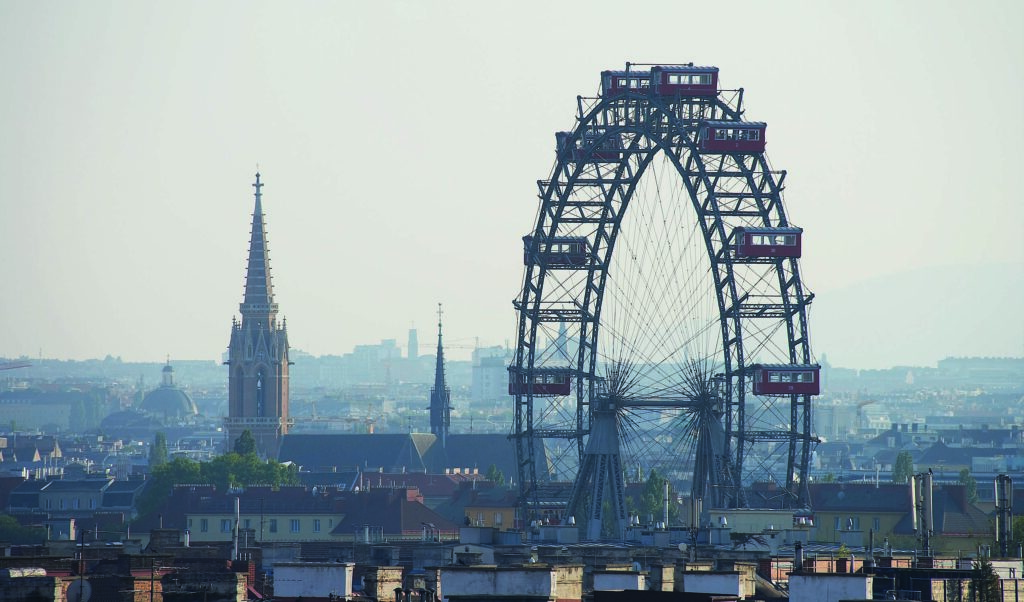Hazardous substances in everyday life

Very few families have a supply chain expert. Many people forget that small quantities of dangerous goods are an essential part of our everyday lives and must be handled and transported with care. This is because even small quantities can cause injuries or burns, trigger fires and explosions and pollute the environment if handled improperly or if damaged. Therefore, always remember that hazardous goods are everywhere in our daily lives and must be handled with special care. Hidden components can cause injuries if used improperly or if unprofessional repair attempts are made.
Challenges and opportunities of digitalization in dangerous goods logistics

Agile, flexible, technically adept – that’s Logward GmbH & Co. KG, a company of the Leschaco Group. Founded in 2018, the technology company combines many years of industry experience in logistics with IT expertise in a supply chain orchestration control tower. As a highly scalable industry platform, Logward combines functionalities from transport, procurement and purchasing for all transport modalities in an easy-to-configure no-code platform. With various application packages, Logward covers the entire life cycle of the logistics supply chain: from procure-to-pay to order-to-cash. Jonas Krumland has been CEO of the company since it was founded. In a guest article for the dangerous goods logistics blog, he explains the idea and vision behind Logward.
Dangerous goods logistics is a question of trust

A few days ago, I met with Oliver Oestreich, COO of the Leschaco Group, to discuss current challenges in dangerous goods logistics. The first part was about developments in specialty chemicals, globalization, logistics software and important certificates for logisticians. The second part is all about knowledge management, battery logistics and the future market of waste logistics.
Dangerous goods logistics is a question of competence and trust

Oliver Oestreich has been a member of the Leschaco Group’s management team since 2003. As Chief Operating Officer (COO), he is responsible for the global sea freight forwarding business, sales in the chemical and automotive sectors and for quality management, environment, compliance and safety. He knows the challenges of dangerous goods logistics, their development over the past twenty years, but also the current trends like few others in the international logistics industry. In April 2024, he will retire after a long career. He has already been preparing his successor Nils Fahrenholz for his new tasks for several months. For the dangerous goods logistics blog, Oliver Oestreich took the time to talk to Michael Kausch in detail about the current challenges in dangerous goods logistics and the most important markets.
Lithium batteries – An IATA white paper on the transportation of dangerous goods by air

Lithium batteries are dangerous goods. We have known this since the catastrophe of the transport ship “Felicity Age“, which sank in the waters of the North Atlantic off the Azores in spring 2022 after a major fire, presumably after a lithium-ion battery in the cargo caught fire. Shipping accidents involving lithium batteries almost regularly fill the leading media and the books of insurance companies. But of course aviation logistics is also concerned with the risks posed by batteries. The International Air Transport Association (IATA) has now published a white paper with the attractive title “Make Lithium Batteries safe to ship”. The paper deals with incidents involving lithium batteries and ways to make battery logistics in air transportation safer. We have taken a look at this document for the readers of Leschaco’s dangerous goods blog.
The advantages of tank containers compared to flexibags in the transport of hazardous liquids

For the safe and efficient transport of liquids in dangerous goods logistics, logistics companies must take into account a wide variety of requirements for “ideal transport conditions”. Tank containers and flexibags play a major role here. How do these two alternatives actually differ? This article attempts to bring clarity to an often confusing discussion. Tank containers are closed, robust containers made of high-quality stainless steel and offer a high level of protection and great safety against external influences, against leakage and contamination. They can be used to transport a wide variety of liquids, including toxic chemicals, sensitive food ingredients and pharmaceutical products.
Current challenges in contract logistics

For Leschaco, contract logistics and dangerous goods logistics go together like butter and bread. This is because contract logistics always shows its strengths where complex processes are involved, where it is not enough to simply transport goods from A to B, but where profound knowledge is required to gain an overview of complicated logistics chains in their entirety and keep them under control, where there really must be no room for error at any point in the process so that the entire process is not jeopardized. And where, if not in the transportation of dangerous goods, doesn’t everything depend on everything? Michael Clover, Head of Commercial Development at Transport Intelligence Ltd., exclusively presents the key findings of the latest Global Contract Logistics Report 2023.
The round has to go into the square. The life cycle of a tank container.

The round has to go into the square. The life cycle of a tank container. Leschaco is one of the pioneers of tank container logistics. We have been using tank containers for the safe transport of dangerous goods for around 50 years. Today, we have a fleet of more than 5,000 of our own tank […]
Every grain of sand counts: Leschaco as official consultant for dangerous goods

Every grain of sand counts: Leschaco as official consultant for dangerous goods. Have you ever been confronted with the fact that the regulations of the country of origin, international transportation, and regulations in the country of destination are completely opposed to each other in an international movement of dangerous goods? How have you dealt with […]
Leschaco at the 57th EPCA Annual Meeting in Vienna

Leschaco at the 57th EPCA Annual Meeting in Vienna The 57th Annual Meeting of the European Petrochemical Association – “EPCA” for short – will be held in Vienna from September 25 to 28, 2023. Of course, Leschaco is also present as a member of the association. Here we focus on ensuring efficient safety standards within […]
